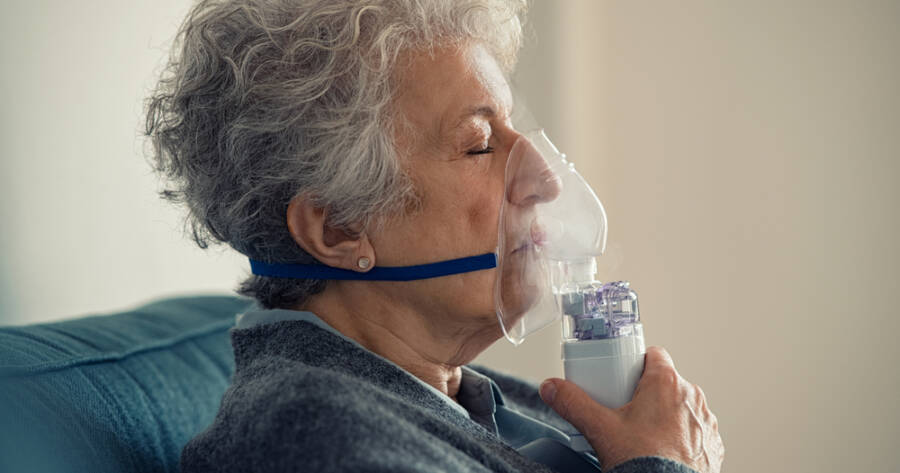For those living with chronic obstructive pulmonary disease (COPD), gaining access to oxygen concentrators can be a critical step towards improved quality of life. Medicare plays a pivotal role in facilitating this access through coverage options under its Durable Medical Equipment (DME) benefit, although it brings specific eligibility conditions and documentation requirements. From understanding cost coverage to navigating supplier obligations and managing potential out-of-pocket expenses, uncovering these nuances is key to optimizing healthcare support for COPD patients.
Understanding Medicare Coverage for COPD Oxygen Concentrators
For individuals diagnosed with chronic obstructive pulmonary diseasee (COPD), oxygen concentrators can significantly improve quality of life by providing vital respiratory support. Fortunately, Medicare may offer coverage for oxygen concentrators, alleviating financial burden.
To qualify, certain conditions must be met, such as a doctor’s prescription and a certificate of medical necessity, highlighting the patient’s need for continuous oxygen therapy. Medicare Part B, specifically, covers oxygen equipment and accessories for home use under its durable medical equipment (DME) benefit, catering to those who meet the outlined criteria.
Eligibility and Cost Coverage
Individuals eligible for Medicare include those who are 65 or older, have a documented disability, or are suffering from end-stage renal disease. Medicare beneficiaries need to ensure their doctor’s documentation precisely outlines the necessity for oxygen equipment, including required flow rates and duration of use. Under Medicare Part B, up to 80% of rental costs for home oxygen equipment is covered if all criteria are met.
Patients are responsible for the remaining 20% and any Part B deductible. The initial rental period typically lasts 36 months, extending coverage to a total of five years if the medical need continues. This provision ensures continuity of care and coverage, alongside necessary equipment maintenance and servicing.
Documentation for Medicare Claims
Proper and thorough documentation is vital in securing Medicare coverage. It involves the completion of Form CMS-484 (Certificate of Medical Necessity: Oxygen), which the treating physician must sign, substantiating the necessity for oxygen therapy upon showing that alternative treatments were insufficient. A comprehensive prescription must specify the patient’s diagnosis, desired oxygen flow rate, and expected treatment duration.
Accurate medical records, such as recent blood gas studies, determine significant hypoxemia and are crucial in justifying the patient’s need for oxygen therapy. These specific requirements underscore Medicare’s intent to provide oxygen therapy for patients with severe lung diseases or certain hypoxia-related symptoms.
Contribution of Suppliers and Equipment Maintenance
Medicare mandates that suppliers provide the specific type of oxygen equipment ordered by healthcare providers and accommodate any modifications as directed. Maintenance and servicing of the rented equipment are also covered under Medicare during the rental term. The coverage can extend beyond the initial three-year term if the medical requirement persists, emphasizing supplier accountability in ensuring the continuous supply is maintained through timely service and upkeep of equipment used.
Limitations and Additional Requirements
Despite Medicare’s beneficial coverage, there are limitations, notably when it comes to portable oxygen concentrators. These devices are considered supplementary, so Medicare may not fully cover them, requiring additional out-of-pocket payments for patients who seek mobility solutions.
Medicare explicitly excludes oxygen solely for sleep studies or for travel-related use, such as on airplanes. Patients must adhere strictly to detailed requirements when seeking portable oxygen systems or considering travel health needs, ensuring they understand any ancillary costs that could arise.
Patients Navigating the Medicare Process
Patients may find the Medicare coverage process complex, requiring adherence to the myriad conditions and protocols specified. Services offered by companies such as Inogen include free Medicare eligibility checks, which can aid in determining qualification and streamline access to necessary medical equipment.
Collaborating with Medicare-approved suppliers will further ensure that eligible patients receive the covered oxygen therapy and equipment. This can help enable a smoother Medicare navigation experience and eliminate the stress of managing complex medical benefits unsupervised.
Why You Should Learn More About Medicare for Oxygen Concentrators Today
Understanding how Medicare covers COPD oxygen concentrators is crucial for those who rely on this life-altering therapy. Familiarity with eligibility criteria, cost coverage, and necessary documentation can considerably ease the process of obtaining medical support at reduced costs.
By being informed about the expectations and requirements surrounding Medicare plans and potential out-of-pocket expenses, beneficiaries can better manage their healthcare and gain peace of mind. As policies and costs evolve, staying updated with Medicare’s guidance on oxygen therapy and safeguarding the well-being of those managing chronic respiratory conditions is essential.
Sources
Inogen’s Guide to Medicare and Portable Oxygen Concentrators



